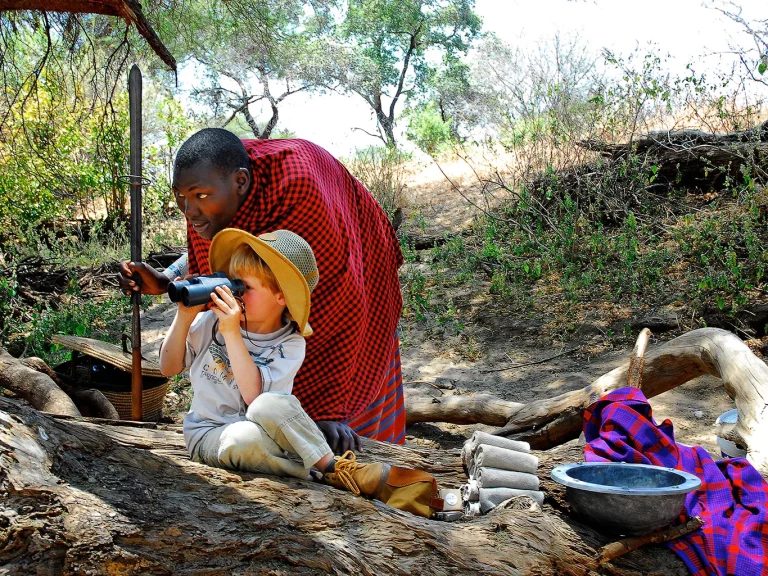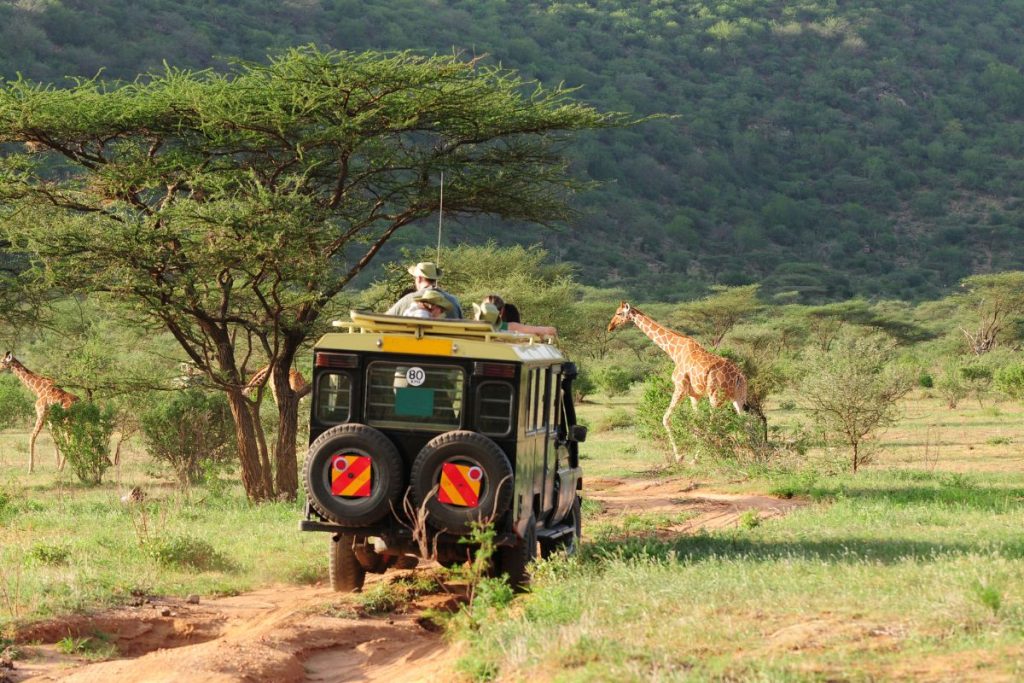Handy Ideas For Choosing Kenya Tours And Safaris
Wiki Article
What Safety And Security Concerns Should I Consider Before Going To Mombasa, Kenya For A Holiday?
For a hassle-free holiday in Mombasa Kenya, it is crucial to take into consideration the safety and security. These are the most important items to be aware of.
1. General Security
Keep yourself informed. Stay up-to-date with local news and travel advisories from your home country.
Register at Your Embassy.
2. Health Precautions
Check for vaccinations: Ensure that you're up-to-date on routine vaccinations and consider additional vaccines such as Hepatitis A, Hepatitis B, Typhoid, and Yellow Fever.
Prevention of Malaria: Mombasa is a malaria-endemic region. Make use of antimalarial medicines, insect repellents, wear long sleeves during the night, and sleep in mosquito nets.
Food and water safety Make sure you drink only water from a bottle or that has been boiling. Avoid eating ice cubes, and eat foods that are cooked properly. Be aware of street food.
3. Personal Safety
Be cautious when walking at night. Make sure you are in areas with a lot of people. Avoid walking along the beach at night, or in dark areas.
Protect Your Values Hotel safes are a good option for passports, money, and other important items. Don't display expensive electronics or jewelry.
Make sure you use reputable transportation: Select registered taxis or ride-hailing services. The hotel may help arrange transportation. Avoid unmarked taxis.
4. Local Laws and Customs
Dress respectfully and with respect Particularly when visiting holy sites. Be aware of local customs.
Drug laws: Kenya has strict drug laws that have severe penalties. Avoid involvement in illegal drug use.
Photography: Always get permission prior to taking pictures of people, particularly in rural areas or military and government buildings.
5. Beach and Water Safety
Swim Safely. Be aware of local advice. Swim in designated areas.
Marine Wildlife: Be aware of marine life such as jellyfish and sea urchins. Walking on the beach requires proper footwear.
6. Crime Prevention
Petty crime: Bag snatching, and pickpocketing are not uncommon, especially in places that are crowded. Stay vigilant and ensure that your valuables are close to you.
Be wary of strangers who seem to offer too much help or make offers that sound too good to be true. Use licensed tour agents.
Emergency Contacts: Be aware of the emergency numbers in your area such as Police (999) (999), Fire (999) and Ambulance (999). Always keep the contact details of your country's consulate or embassy in your pocket.
7. Natural Hazards
Weather: Mombasa has a tropical climate that is susceptible to floods and heavy rains especially during the rainy seasons (April-June and October-November). Stay informed about weather forecasts.
Sun Protection Use hats and sunscreen to protect yourself from sunburn as well as heat exhaustion.
8. Travel Insurance
Comprehensive Coverage: Ensure that you are covered by travel insurance that includes medical emergency situations, theft, loss and travel interruptions. Verify that the policy you are purchasing includes insurance for any activity, like water sports.
You can enjoy your vacation in Mombasa with peace of mind by keeping these security and safety guidelines in your mind. Have a look at the most popular kenya day tours for website recommendations including safari a nairobi, luxurious african safari, mombasa safari, luxurious african safari, african safari tours kenya, kenya tourism, trips to kenya safari, tours & safaris, holiday packages mombasa, african safari packages and more.

What Cultural Sensitivity Considerations Should I Be Aware Of When Visiting Mombasa In Kenya?
When holidaying in Mombasa, Kenya, being culturally sensitive is essential to ensure respectful interactions with local people and enhance your experience on the road. Here are some essential considerations.
1. Be respectful of local dress codes
Mombasa's Muslim number is substantial. Dress modestly in public places, churches, or in your local neighborhood. This means you must cover your shoulders, chest as well as your knees and legs.
Wearing beachwear. While it's fine to wear a swimsuit on the beach but you should be sure to cover your skin before you leave the beach area and go to nearby eateries or shops.
2. Religious Sensitivity
Visiting mosques. To visit a place of worship, you must first get permission. You should also dress modestly. Women should cover their hair and take off shoes.
Prayer Times: Be sure to keep track of the five times for prayer each day and be respectful during them, especially in the vicinity of the mosque.
3. Photography Etiquette
Request permission to take photographs, particularly in rural or traditional environments. Some people might feel uncomfortable, or think that it's intrusive.
Beware of restricted areas - Don't take photographs of areas that are sensitive, such as military installations and government structures.
4. Social Interactions
It is crucial to greet people courteously. Swahili has a greeting called "Jambo" or "Hello". Handshakes are common, but it's more respectful for Muslim women to wait until their hands are extended or to greet in a more formal manner.
Respect your privacy. Be aware of any physical contact.
5. Cultural The Norms Taboos
Public Displays of Affection: Avoid public displays of affection as they are frowned upon.
The Left Hand isn't utilized. Use your left hand when eating, wishing people well or exchanging money and products.
Foot: It is disrespectful to show your soles or point your feet towards people.
6. Language and Communication
Basic Swahili: Learning a few fundamental phrases in Swahili can go a long way in creating respect and building relationships with the locals. The most common Swahili phrases include "Asante" meaning "thank you" as well as "Habari", which means "How do you feel?" ).
Politeness: Make sure you are polite and patient in your communication. Kenyans are courteous and respectful in their interactions.
7. Respect for Local Customs
Respecting the traditions of your culture Respecting the traditional rituals and customs. Follow the host's instructions when you attend an event.
Bargaining: At markets and local stores there is a lot of bargaining. Be sure to bargain with respect and good humor. It's cultural rather than confrontational.
8. Alcohol and Smoking
Alcohol is available for consumption however it should be done discreetly. Avoid public drunkenness.
Smoking Smoking is generally not allowed in public places. There are designated areas for smoking.
9. Environmental Respect
Eliminate littering, and be mindful of disposing of rubbish in a responsible manner. Respect nature, wildlife, and other animals.
Conservation: Help in conservation efforts and respect local wildlife and their habitats. Beware of buying products made from endangered species.
10. Assisting Local Communities
Local Businesses: Support local business, artisans and markets to help boost the local economy.
Responsible Tourism: Engage in responsible tourism practices by choosing eco-friendly tourism and local-based options that are beneficial to the local population.
If you adhere to these guidelines for cultural sensitivity, your visit to Mombasa will be more relevant, respectful, and enriching. Follow the best kenya tours and safaris for website advice including mombasa travel agency, kenya safari tours, mombasa safari packages, mombasa travel agency, holiday packages mombasa, trips to kenya, kenya safaris and tours, kenya tours, tour company, kenya safari and beach and more.

What Safari And Tour Planning Should I Know When Holidaying In Mombasa, Kenya?
If you are planning a trip or safari trip in Mombasa Kenya it is important to consider all the factors that will make your trip unforgettable. Keep in mind these key elements:
1. Choose a Safari Tour Operator
Select a tour operator with an excellent track record. Choose tour operators that are accredited by the Kenya Association of Tour Operators.
Compare the various packages provided by tour operators. Prices vary from low-cost to luxurious and can differ in terms of duration, inclusive activities, and accommodations.
Guides: Make sure that the tour operator has experienced, knowledgeable guides. They must be accredited by relevant associations.
2. Popular Safari Destinations from Mombasa
Tsavo West: This is the second largest game reserve in Kenya. It is divided into Tsavo West, and Tsavo West. It is famous for its varied wildlife, that includes rhinos and elephants.
Amboseli National Park is famous for its elephant herds, and for the breathtaking views of Mount Kilimanjaro.
Shimba Hills National Reserve is close to Mombasa and has stunning landscapes and the opportunity to view rare species such the Sable Antelope.
Maasai Mara is a wildlife paradise, which is a bit than Mombasa. It's known as the site of the Great Migration, and it provides a unique experience for wildlife.
3. Safaris and Tours - Types
Game Drives are a classic safari which includes 4x4 vehicles game drives, which provide close encounters with wildlife.
Walking Safaris. Guided walking tours give you the chance to experience the bush as well as discover the flora of the smaller areas.
Balloon Safaris are available in specific parks, such as the Maasai Mara. They provide a bird’s-eye view of wildlife.
Beach and Bush Combos - Combine an experience on safari and a time spent at the stunning Mombasa beaches for an unforgettable experience.
Cultural Tours: Explore local villages and historical sites, like Fort Jesus and Mombasa Old Town.
4. Timing and Duration
The best time to visit The dry season (June-October) is the best time to observe wildlife because animals tend to congregate near water sources. The Great Migration in Maasai mara usually occurs between July to October.
Safaris are offered in various lengths, from day-trips to long-distance trips. It is important to consider your schedule and the amount of time you want to spend in the wilderness.
5. What Should I Pack
Clothing Dress in light comfortable, breathable clothing with neutral shades. Include the long sleeves as well as pants to provide nighttime protection from mosquitoes.
Shoes: For walks well-fitting walking boots or shoes are essential.
Accessories: Wear a wide-brimmed hat, sunglasses, sunscreen, as well as insect repellent.
Gear: Binoculars are vital to wildlife photography as well as viewing. A good camera, with extra batteries as well as memory cards, are important.
Medication: Take any medication you require. Also, bring anti-malarial medication and a basic first aid kit.
6. Health and Safety
Vaccinations: Ensure you have the recommended vaccines and have the certificate of vaccination if needed.
Prevention of malaria: Wear long sleeves at night, use insect repellent and take anti-malarial medicines.
Water and Food Safety Consume bottled or purified water, and eat at trustworthy establishments.
7. Payments and Costs
Budgeting: Safaris can be expensive Therefore, be sure to plan your budget in advance. Think about all-inclusive deals that include accommodation, meals and activities.
Payment Methods: Many companies accept credit cards and bank transfer. Check the payment options and any required deposits.
8. Environmental and Ethical Concerns
Select operators that are eco-friendly:
Wildlife Protection: Respect wildlife and keep a secure distance. Do not disturb wildlife. Do not purchase products made from endangered species.
9. Travel Insurance
Coverage - Make sure that your travel policy includes medical emergencies as well as possible disruptions to travel.
10. Booking and Confirmation
Safaris can be very popular and book up fast, especially in peak season. Make reservations early.
Confirmation : Discuss with your tour operator all information, including pickup times, schedules and contact details.
If you think about these elements, then you can create a fun and organized safari starting from Mombasa that will make your Kenyan vacation. Take a look at the top best holiday destinations in kenya for website recommendations including africa in kenya, mombasa safari, safari trips in africa, safar kenya, africa in kenya, safari excursions, kenya tours, mombasa safari, mombasa safari, kenya tours and safaris and more.
